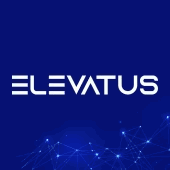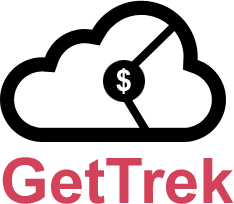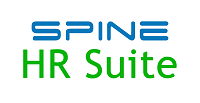Description

Elevatus

GCPAY
Comprehensive Overview: Elevatus vs GCPAY
Certainly! Below is a comprehensive overview of Elevatus and GCPAY, exploring their primary functions, target markets, market share, user base, and key differentiating factors.
Elevatus
a) Primary Functions and Target Markets:
-
Primary Functions: Elevatus specializes in AI-powered recruitment and talent acquisition software. It offers features such as applicant tracking, video interviewing, candidate assessment, and recruitment marketing. The platform aims to streamline the hiring process and improve the quality of hires by leveraging artificial intelligence and machine learning.
-
Target Markets: Elevatus mainly targets the human resources sector across various industries, including medium to large enterprises with extensive recruitment needs. It is suitable for companies looking to modernize their recruitment processes and enhance candidate experience through advanced technology.
b) Market Share and User Base:
-
Market Share: Elevatus operates in a competitive market with players like Greenhouse, Lever, and Workday. While it may not have the same brand recognition as some larger players, Elevatus is rapidly expanding, especially in regions where AI-driven recruitment tools are gaining traction.
-
User Base: Elevatus has a growing user base, particularly among tech-savvy companies looking to leverage AI in recruitment. Its user-friendly interface and customizable features make it appealing to HR professionals aiming for efficiency and improved metrics.
c) Key Differentiating Factors:
- Artificial Intelligence Integration: Elevatus's significant advantage lies in its AI-driven features, offering predictive analytics and smart candidate matching, which sets it apart from more traditional recruitment platforms.
- User Experience: The platform is noted for its intuitive design and ease of use, which aids in faster adoption and more seamless integration into existing HR practices.
GCPAY
a) Primary Functions and Target Markets:
-
Primary Functions: GCPAY is a cloud-based payment and invoice management software designed specifically for the construction industry. It facilitates the processing of construction pay applications, lien waivers, and compliance documents, improving efficiency in subcontractor payment workflows.
-
Target Markets: GCPAY targets construction firms, general contractors, and subcontractors. Its solutions are crafted to address the unique challenges of construction billing, compliance, and financial management.
b) Market Share and User Base:
-
Market Share: GCPAY is a niche product within the construction industry, competing with other construction management software like Procore, Viewpoint, and Textura. Its focus on payment processes gives it a distinct position, though it remains specialized compared to more comprehensive project management solutions.
-
User Base: The platform has garnered a dedicated user base among construction companies seeking to enhance their financial operations and ensure compliance. It is particularly popular with firms that prioritize streamlining their billing and payment processes.
c) Key Differentiating Factors:
- Construction-Specific Features: GCPAY’s specialization in construction payment management serves as a key differentiator. It includes features like automated lien waiver generation, compliance tracking, and custom billing processes tailored to construction workflows.
- Integration Capabilities: GCPAY's ability to integrate with existing construction management and ERP systems is a critical advantage, providing a seamless flow of financial data across platforms.
Comparison and Conclusion
- Market Focus: Elevatus focuses on recruitment across various sectors, while GCPAY is tailored for the construction industry's financial management needs.
- Technology Emphasis: Elevatus stands out with its AI-driven functionalities, whereas GCPAY excels in specialized financial management for construction.
- User Base Expansion: Both platforms are expanding within their respective markets, with Elevatus gaining traction in AI recruitment and GCPAY consolidating its position in construction finance.
While Elevatus and GCPAY serve different industries and functionalities, each makes a significant impact within its niche by catering to specific operational needs and offering unique solutions tailored to its target market's challenges.
Contact Info

Year founded :
2019
Not Available
Not Available
United Kingdom
http://www.linkedin.com/company/elevatus

Year founded :
Not Available
Not Available
Not Available
Not Available
Not Available
Feature Similarity Breakdown: Elevatus, GCPAY
As of my last update, Elevatus and GCPay serve different functions within the technology landscape. Elevatus is primarily an AI-driven recruitment and hiring platform, while GCPay focuses on construction payment management. However, they may still share some core technological features and design principles, particularly if they both emphasize user-friendly interfaces and digital efficiencies.
a) Core Features in Common
-
Cloud-Based Accessibility:
- Both Elevatus and GCPay are likely to offer cloud-based solutions, allowing users to access their systems from anywhere with internet connectivity. This is a common feature across modern SaaS products.
-
Automation:
- Automation capabilities are usually integral in both platforms, albeit applied differently. Elevatus may automate applicant tracking and candidate matching, while GCPay automates invoice workflows and payment processes.
-
Analytics & Reporting:
- Both platforms likely provide robust analytics tools. Elevatus might offer insights into recruitment analytics, while GCPay offers financial and project reporting.
-
User Permissions:
- Both systems likely include tiered user permissions to manage access to sensitive data, ensuring that only authorized personnel can perform specific actions.
b) User Interface Comparison
-
Design Philosophy:
- Elevatus: Likely focuses on a clean, intuitive UI catered to HR professionals, emphasizing ease of navigation across its candidate tracking system.
- GCPay: May have a more data-centric layout tailored for financial professionals and project managers who need quick access to payment and contract data.
-
Customization:
- User interfaces for both platforms can typically be customized to some degree to suit different workflows, although the extent of customization might vary.
-
Visualization Tools:
- Both platforms might incorporate dashboards featuring visual tools like graphs and charts to provide at-a-glance insights into data, such as recruitment pipelines in Elevatus and project payment statuses in GCPay.
c) Unique Features
-
Elevatus:
- AI-Driven Candidate Matching: Elevatus uses AI algorithms to match candidates to job descriptions efficiently, which sets it apart in the recruitment field.
- Video Interviewing Tools: It may include integrated video interviewing capabilities, providing a seamless interviewing process directly within the platform.
-
GCPay:
- Lien Waiver Management: Specific to construction payment industry needs, GCPay might offer comprehensive tools for managing lien waivers.
- Integration with Accounting Software: GCPay may offer unique integrations with construction management and accounting software like Sage 300 CRE, setting it apart in its industry space.
In summary, while Elevatus and GCPay might share overarching features common to many SaaS platforms such as cloud-based access and automation capabilities, each is specifically tailored to meet the unique needs of their respective industries—HR and construction payments. Their interfaces reflect these focuses, and each has specialized features that cater to their target users.
Features

Not Available

Not Available
Best Fit Use Cases: Elevatus, GCPAY
Elevatus:
a) Best Fit Use Cases:
- Businesses or Projects:
- Recruitment and Human Resources: Elevatus is ideally suited for companies that are heavily reliant on recruitment processes, such as recruitment agencies, large corporations, and enterprises with substantial human resource needs.
- Tech-Savvy Industries: It appeals particularly to tech companies and startups that demand automated, data-driven recruitment solutions to effectively manage talent acquisition and streamline workflows.
b) Use Cases and Scenarios:
- Volume Hiring: Organizations that need to manage large volumes of applications and candidates, such as seasonal hiring in retail or mass recruitment in call centers, benefit significantly from Elevatus.
- Customizable ATS Needs: Companies requiring tailored applicant tracking systems (ATS) to suit specific recruitment processes and workflows.
d) Industry Verticals/Company Sizes:
- SMEs to Large Enterprises: Elevatus caters to a wide range of company sizes, from small and medium enterprises (SMEs) to large multinational corporations.
- Diverse Sectors: Although it finds a strong foothold in tech and startups, it's versatile enough to be used in diverse industries such as finance, healthcare, education, and any sector that prioritizes an efficient hiring process.
GCPAY:
a) Best Fit Use Cases:
- Businesses or Projects:
- Construction Industry: GCPAY is specifically tailored for the construction industry for managing payments, invoices, and subcontractor communications.
- Large-Scale Construction Projects: It is best suited for contractors and subcontractors involved in large-scale construction projects where managing and tracking pay applications, compliance documents, and waivers is critical.
b) Use Cases and Scenarios:
- Complex Pay Applications: Companies dealing with complex pay applications and needing to streamline compliance and documentation processes will find GCPAY beneficial.
- Subcontractor Management: Ideal for general contractors who need a platform to manage subcontractor invoicing and compliance efficiently.
d) Industry Verticals/Company Sizes:
- Construction Focused: Primarily targets the construction industry, making it a niche product highly specialized for construction finance and administration.
- Medium to Large Construction Firms: GCPAY is particularly suited for medium to large construction firms that have a heavy and intricate subcontractor network.
Both products address specific needs within their respective domains: Elevatus offers a streamlined recruitment solution for industries with high hiring demands, while GCPAY provides a specialized toolset for financial and administrative management in the construction sector.
Pricing

Pricing Not Available

Pricing Not Available
Metrics History
Metrics History
Comparing undefined across companies
Conclusion & Final Verdict: Elevatus vs GCPAY
To determine which product offers the best overall value between Elevatus and GCPAY, it's essential to consider various factors such as functionality, ease of use, cost, customer support, and specific needs of the users or organizations.
Conclusion and Final Verdict
a) Best Overall Value
Product Offering Best Overall Value: The product that provides the best overall value depends significantly on the specific needs of the user or organization. However, if we consider general use cases:
-
Elevatus: If the organization's primary need is focused on talent acquisition and recruitment automation, Elevatus offers exceptional value with its comprehensive recruitment and AI-driven features. It's particularly suited for HR departments looking to streamline their hiring processes.
-
GCPAY: On the other hand, for construction companies or contractors that require robust compliance and payment processing capabilities, GCPAY offers specialized tools tailored to managing construction billing and compliance effectively. Thus, it presents greater value for construction and project management sectors.
b) Pros and Cons
Elevatus:
-
Pros:
- Comprehensive recruitment solutions that leverage AI and machine learning for improved talent acquisition.
- User-friendly interface with customizable features to suit different organizational needs.
- Strong customer support, often praised for responsiveness and helpfulness.
-
Cons:
- May offer more features than necessary for small companies, leading to underutilized capabilities.
- Costs could be higher if advanced features aren't fully leveraged.
GCPAY:
-
Pros:
- Specialized for the construction industry, offering valuable tools for project compliance and payment processes.
- Effective in streamlining billing processes and ensuring regulatory compliance.
- Improves efficiency in handling complex contracts and lien waiver management.
-
Cons:
- Limited scope outside the construction industry, making it less versatile for non-construction companies.
- Potentially steep learning curve for first-time users unfamiliar with construction-specific IT solutions.
c) Specific Recommendations
-
For Users Focused on Recruitment and HR:
- Recommendation: Opt for Elevatus if your organization is looking to enhance its recruitment processes with AI-driven insights and automation. It's ideal for companies that aim to improve efficiency in talent acquisition while enjoying a customizable experience.
-
For Construction and Payment Compliance Needs:
- Recommendation: Choose GCPAY to benefit from a platform designed specifically for handling construction compliance, contract management, and payment processes. It’s particularly valuable for companies deeply embedded in construction and related industries.
-
General Recommendation:
- Evaluate your organization’s specific needs in terms of industry focus and operational requirements. Conduct a cost-benefit analysis based on the features your organization will most likely utilize.
- Try to leverage any available free trials or demos offered by each product to better understand which solution aligns more closely with your organizational goals and workflows.
Add to compare
Add similar companies



